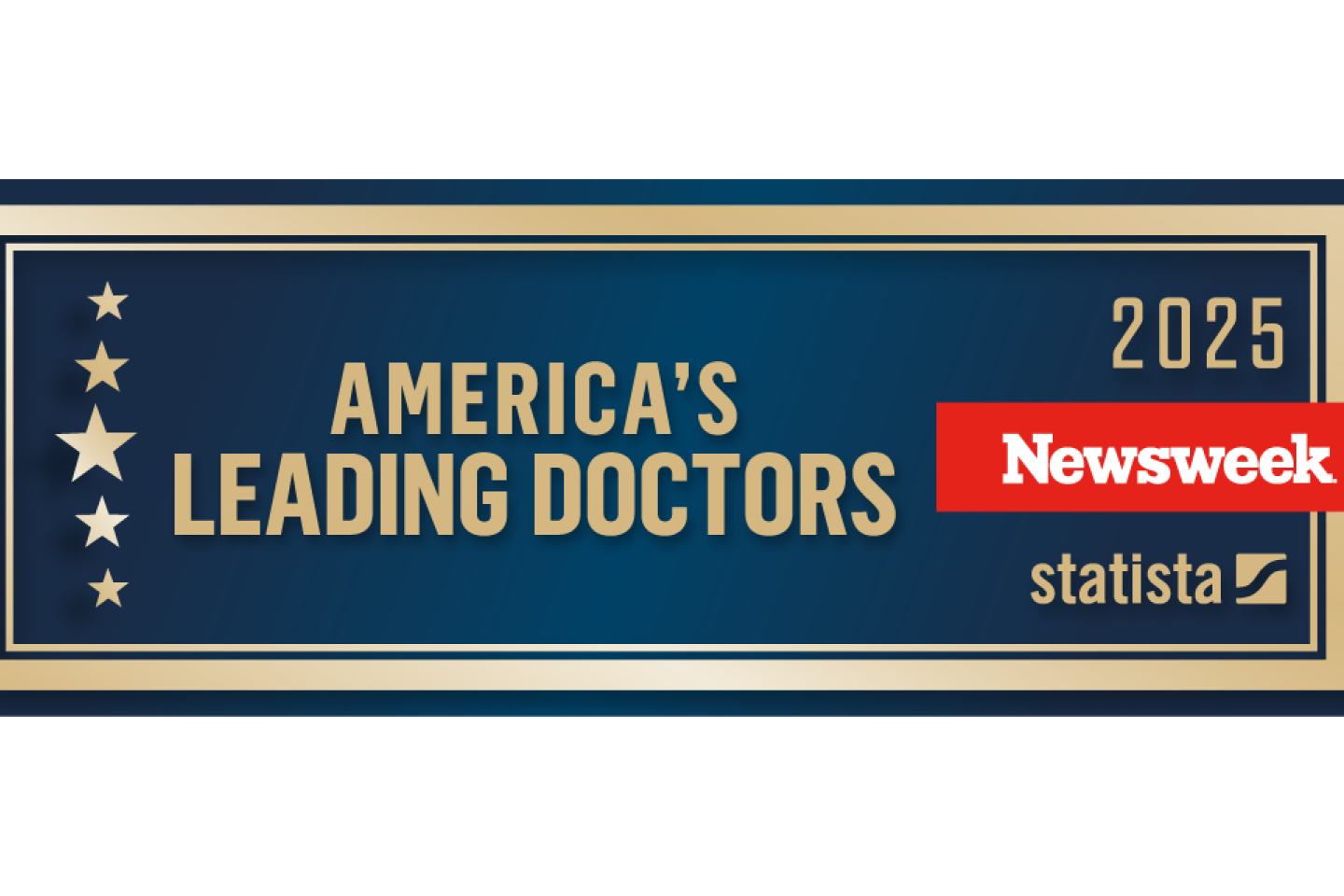
This article originally appeared in Newsweek on July 30, 2025.
Choosing the right doctor matters—especially when you or a loved one is facing complex or life-saving surgery. Specialists go beyond the common diagnoses and care from general practitioners to offer advanced expertise to treat specific conditions with focus and precision.
In addition to the specific training and certifications required to advance in their fields, these physicians also share a similar passion and metric for success when providing top-tier care to patients.
For the first time, Newsweek and Statista compiled a ranking of America's Leading Doctors 2025, which highlights more than 2,800 doctors from 15 medical specialties in hospital systems around the country. Previously, the partners published top rankings for vascular and spine surgeons; this is the first comprehensive ranking to be published.
"High-quality specialist care is crucial for long-term health," Statista told Newsweek in a statement. "With this new resource, Statista and Newsweek continue to expand their portfolio of high-quality health care rankings, committed to empowering patients with trusted, data-driven guidance for some of life's most important health decisions."
Each specialty highlights 175 to 200 doctors, with the top 30 ranked numerically, and the rest listed alphabetically by last name.
The specialties include:
Ranked doctors have up to three affiliated hospitals, which are determined by patient volume and desk research. Doctors with no hospital affiliations listed may work in private practices or at an institute.
Being a top specialist requires not only years of training but deep commitment and the mindset that the job is tough and inconvenient.
Dr. Leonard Girardi, the top cardiothoracic surgeon on the breakout ranking, is a professor and chief of cardiothoracic surgery at NewYork-Presbyterian and Weill Cornell Medicine.
"Today's faculty member has to understand that it is not a job, it is a career, it is a commitment, it is a passion, and you have to be willing to make a lot of sacrifices so that you can be available and deliver the best care to your patients who are under your care," he told Newsweek. "And that may be inconvenient, but 24/7 is the business, at least of cardiothoracic surgery. You can't flip a switch and turn it off."
Being a top specialist requires not only years of training but deep commitment and the mindset that the job is tough and inconvenient.
Dr. Leonard Girardi, the top cardiothoracic surgeon on the breakout ranking, is a professor and chief of cardiothoracic surgery at NewYork-Presbyterian and Weill Cornell Medicine.
"Today's faculty member has to understand that it is not a job, it is a career, it is a commitment, it is a passion, and you have to be willing to make a lot of sacrifices so that you can be available and deliver the best care to your patients who are under your care," he told Newsweek. "And that may be inconvenient, but 24/7 is the business, at least of cardiothoracic surgery. You can't flip a switch and turn it off."
"It's really important to be able to take complex situations and put it into layperson terms," he said. "You have to instill confidence in that and in them, so that they feel that OK in a one-hour conversation ... and that's something that I think you need to always keep in the back of your mind because that's a very humbling thing."
The second data source was peer recommendations. Thousands of medical experts participated in an online survey from March to May 2025 to recommend doctors in their specialty either in or out of their respective states. Recommendations were weighed based on the order of preference indicated, the reason for recommendation and the professional experience of the survey participant.
Survey participants had expertise in one or more of the 15 specialties included on the ranking across the 20 states with the highest number of specialists in the country. Those states include Arizona, California, Colorado, Florida, Georgia, Illinois, Indiana, Maryland, Massachusetts, Michigan, Missouri, New Jersey, New York, North Carolina, Ohio, Pennsylvania, Tennessee, Texas, Virginia and Washington. All doctors in these states were eligible for consideration as long as they performed a minimum number of relevant episodes for each specialty. The top states vary slightly between the specialties.
"Having the confidence of your peers and the respect of your peers is certainly something that is incredibly rewarding and valuable," Girardi said. "If you're doing decent work over a long period of time, hopefully that respect and that confidence in your work will follow. And I'm very grateful, and I think that's the foundation to ultimately having the same confidence coming from patients."
On the recommendations, participants were also asked to assess the quality of care for each doctor, including treatment, follow-up care and use of the most up-to-date equipment, as well as the professional expertise of the doctor. Doctors were rated by peers on a scale of one (poor) to 10 (excellent).
These three data points as well as each doctor's certifications for their specialty from American medical and surgical certification boards contributed to each doctor's final score. Doctor performance data made up 60 percent, peer recommendations accounted for 27.5 percent and quality assessment and certifications made up 7.5 percent and 5 percent, respectively.
For the doctors on the list, being a leading doctor in their respective specialty requires more than these data points.
As these fields evolve through research and technological advancements, physicians are able to provide better care—meaning using less invasive procedures and offering personalized care to each patient.
To continue reading, please visit Newsweek.